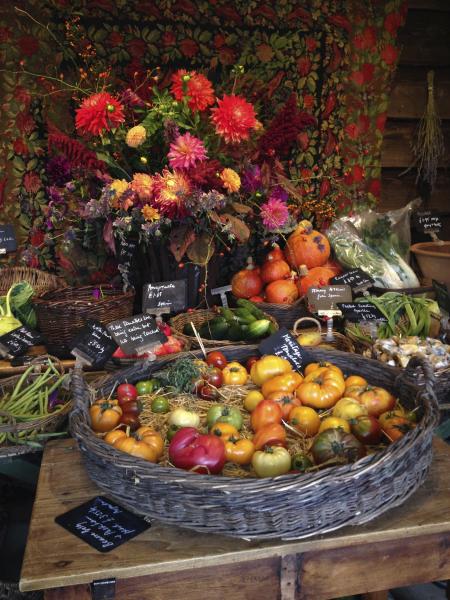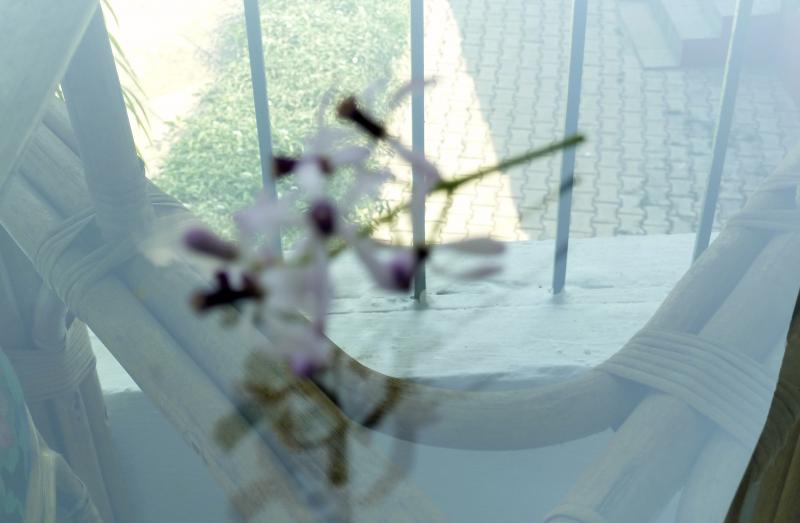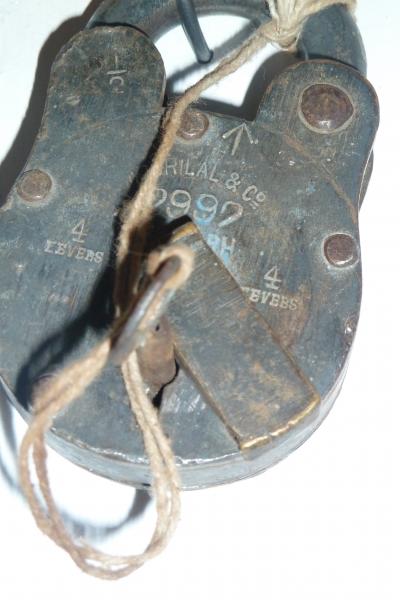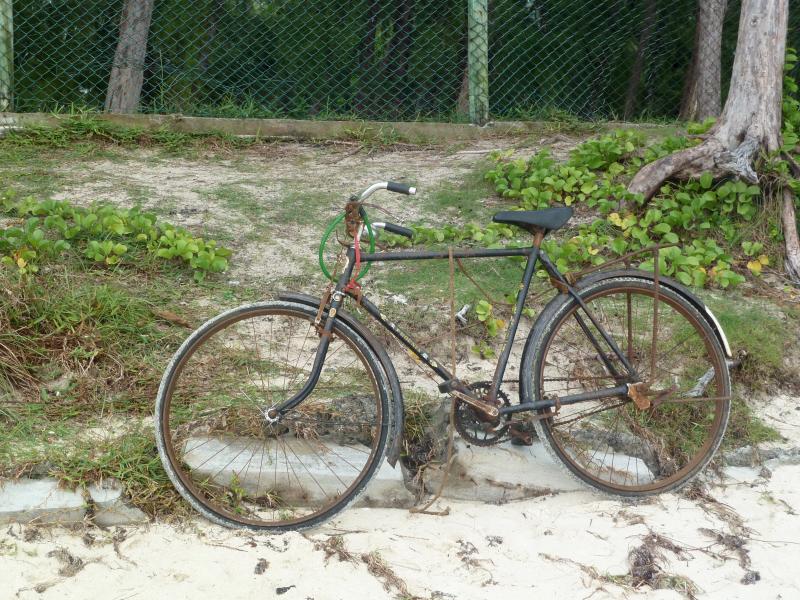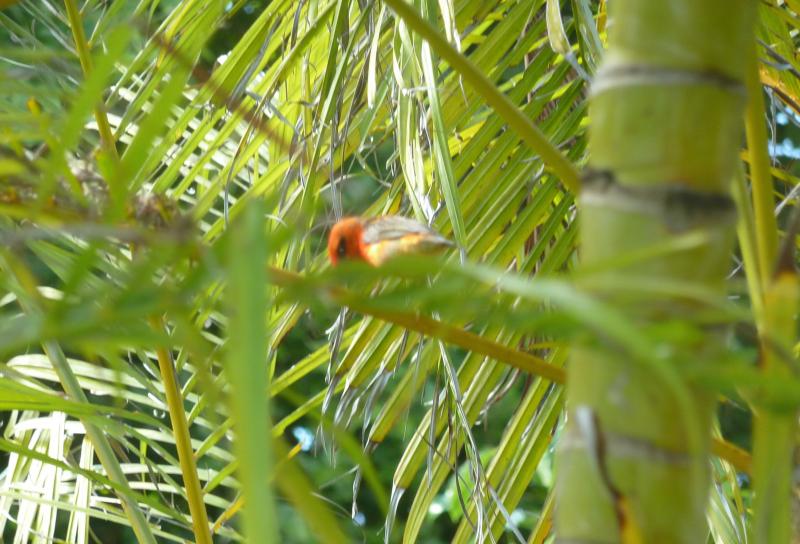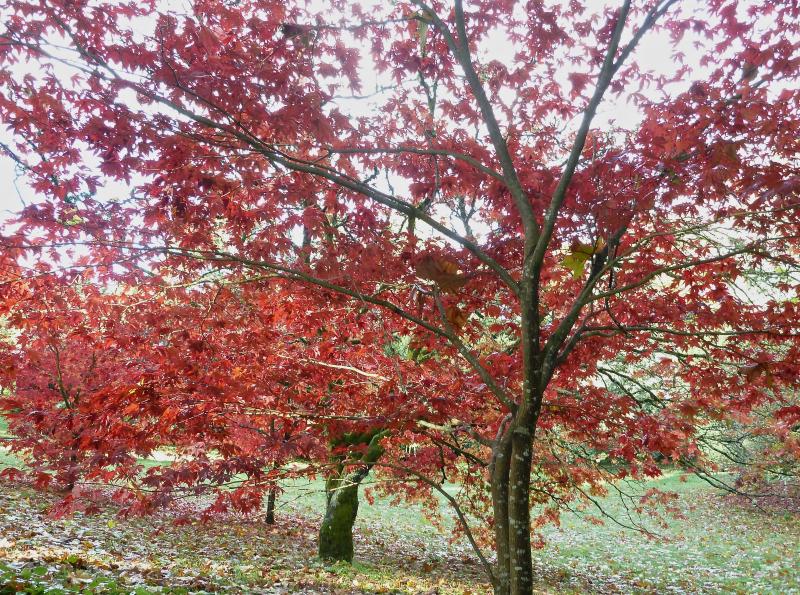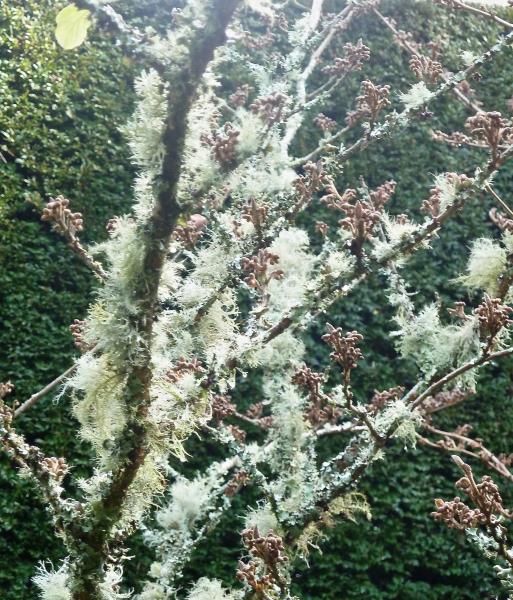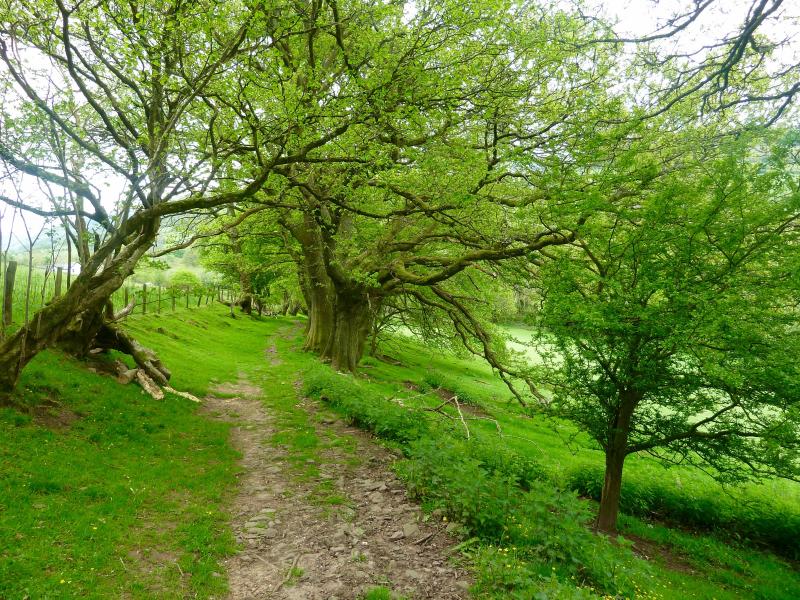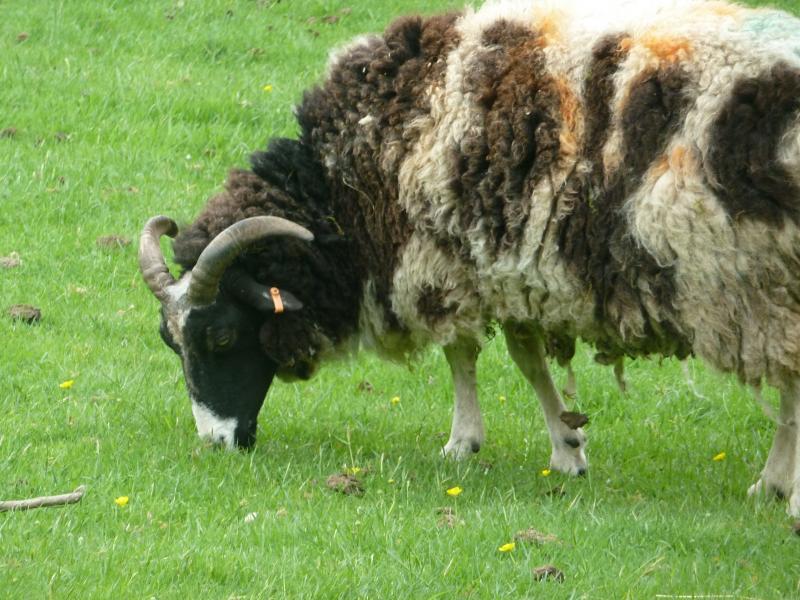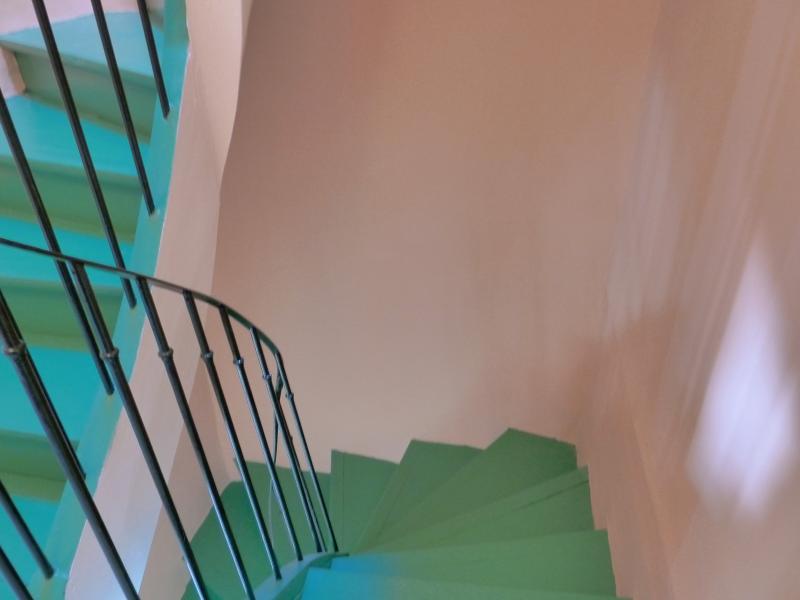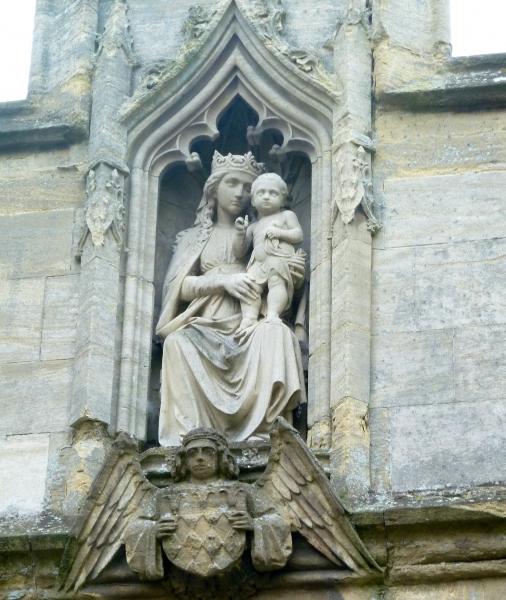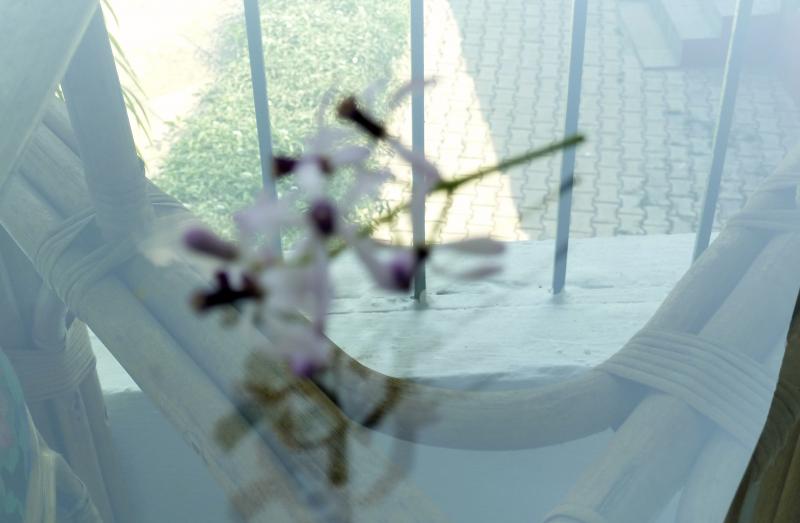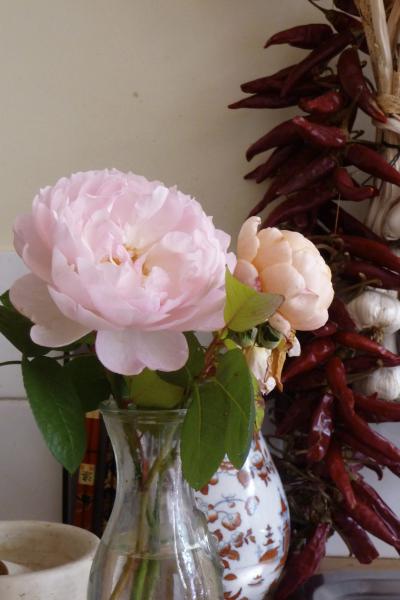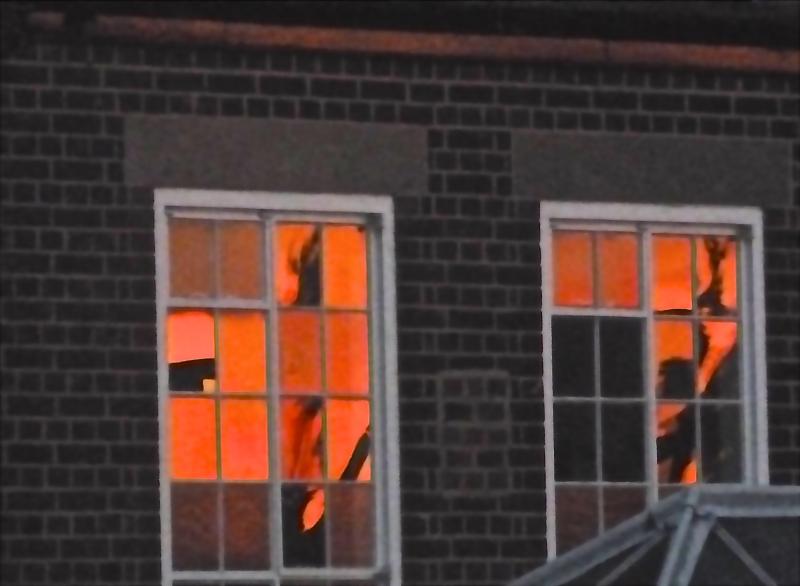
Rajiv was a useless hustler. He smiled shyly, twitched his shoulder cloth and whispered, “Hello”. The other boys on Varkala’s main promenade block your way with cheeky familiarity. “This way please, Madam. Madam, I said good morning. Hevaniceday!”
I fingered a patchwork shirt. “Any more like this?
Rajiv shook his head from side to side. “No, Ma. This one fashion in one fillum. Now, not. Every time new fillum, new fashion. Then not more find.”
He looked like a puny 12 year old, but his face was embellished with the trademark South Indian film hero’s moustache. Harmless, I thought, and let him show me the way to the Vishnu temple.
We went past the Indian beach, crowded with pilgrims worshipping their ancestors on a Tuesday. We turned into a road teeming with incoming pilgrims, SUVs and lined with seedy hotels, coconut vendors, little shacks selling weak, many times filtered coffee, and strangely coiled heaps of dough, later to be flattened into paratha bread.
A bluff Kashmiri greeted Rajiv, kneading his shoulder and entwining his huge fingers in my guide’s little ones. The Kashmiri ruffled the docile young man’s hair, as one would a child. “A good boy,” he said jovially. We chatted about Kashmir and his work- taking German tour groups around India- and Kerala.
“Funny people, these Malayalis,” said the Kashmiri. “But I admire their women. Even when the husband is away in Dubai, wife will stay faithful. No hanky-panky.”
“Big talk, big mouth,” said Rajiv dismissively when we were out of earshot.
Rajiv prepared by washing at the temple tank- a massive square pond lined with steps like an amphitheatre. He reappeared with a dhoti round his waist and we deposited our sandals at the foot of a steep flight of stairs. Halfway up, I handed a ten-rupee note to the gunpowder men who were stuffing paper cones with explosive. My offering went up, with many others, in an unbroken series of bangs. The noise was to honour the souls of dead relatives.

The Vishnu temple at Varkala is a pilgrimage place for women wanting a child. The courtyard swarmed with young women accompanied by anxious mothers and sour looking mothers-in-law. The young ones’ smooth-skinned faces lit up with intense longing as they pressed toward the inner sanctum. Their prayers reached a crescendo when the goddess was presented at the invitation of drumming and playing of clarinet. The women circumnavigated the sanctum, stopping to pray at four points of the square stone structure. Keeping watch over them were stone apsaras and deities who guard the important gods in attitudes of solemn and sensual languor, displaying large breasts and elaborate coiffures.
Sivaswami, the cheerful bespectacled priest, explained that the temple was built by the Pandya kings 2,000 years ago. He told me the identities of the stone sculptures- Vishnu, Krishna, two Shivas, one a Nataraj, the deities that guard both women and men, all of them rich and lustrous with generations of oil offerings.
Sivaswami wears the normal Stalin type moustache and is relatively light-skinned. He was bare chested and oiled and admitted to not being married. Could his horoscope be unlucky, could he have not found the right girl at 40, could he be in love with a married woman, or could he just not fancy women? Not being married at his age is very unusual.
An immense banyan tree shades nearly the whole width of the temple precinct. It must be 500 years old. Another, smaller one, is hung with thousands of small plastic dolls which have been strung up by childless women, who tread lightly and hover like butterflies in their cream coloured saris edged with gold. Two elderly ladies were playing a single-string soundbox. I handed one a ten-rupee note and told her my name, which she wove into a song meant to lift any curse on my family. As I have always thought someone must have done voodoo on my grandparents, otherwise why have the girls in our family had such rotten luck, I hoped it would be a good investment.
Rajiv and I had vadas and coffee at the corner coffee house. It might have been a scene from R. K. Narayan’s Malgudi, with Talkative Man interrogating and offering information all at once. His wife was still “in service”, but he was a retired tax official. Son “doing well” in Dubai and daughter married off. He made a face. “Coffee not good.” He then mentioned that he lived in a village a few miles off. After we left, Rajiv said in a worried way that I had been too friendly. “Why he tell you his village name? Why he say coffee no good? He want you come to his house. Not trust this man.” He palmed a couple of pills into his mouth.
“What are those for?”
“De-pression.”
At the Hillview Hotel in Varkala Beach, the internet man is also under-sized. He also has a moustache and a boy’s voice. He is always smiling. “Madam, can I ask to you something? Why do Naarth Indians hate Muslims?”
“They do not, Johar,” I say stoutly, sticking up for my kind.
He has two children and a father who made his money in Dubai. Our favourite waiter’s papa also made his money in the Gulf and now the son is at university in Chennai doing software engineering. He waits at tables for pocket money during his Christmas vacation. Bimol, the hotel receptionist, is a graduate. He shakes his head. “100 per cent literacy, no. Maybe 70 per cent. All government propaganda.
“You mean just like the slogan, ‘God’s Own Country’?”
“Exactly.”
Every glossy magazine in the West is full of romantic photos of Kerala proclaiming that ‘God’s Own Country’ could be yours too. Coconut palm vistas, blue lagoons, the slap of paddles in the backwaters, happy 100 percent literate schoolchildren, classical dance and music and, of course, Ayurveda- guaranteed to drive away physical and mental ailments.
If man were indeed fashioned in the image of God, then our collective Father up there must be the Master Litterer of plastic rubbish and alfresco peeing. Just like the rest of India, in fact. Except that the rest of India does not claim to be specially favoured by its Maker.
God favours Kerala in other ways; with remarkable genes, for example. Brilliant mathematicians, scientists, Cabinet Secretaries, top advisors to the Central Government The State lurches from Communist to Congress government, legislative assembly members forming coalitions and alliances and ensuring instability from one year to the next.
Rubber forms the biggest item of export, along with manpower, or womanpower- manpower mainly to the Gulf, womanpower in the shape of neat little nurses to work in British hospitals as well as meek little Catholic nuns to people convents. In the dollar belt, situated between Kottyam and Pathanmitta, up to the minute, gadget-filled villas echo to the shuffle of elderly couples whose progeny are sending back dollars and sterling to compensate for their absence.
A journalist tells me, “The social indicators of highest longevity, birth control, infant mortality, male/female ratio, literacy look so impressive. They simply don’t take into account the social crisis of rampant alcoholism, drug addiction, highest chloresterol count, fatherless families. The stats fail to mention the lack of investment in higher education. School-leavers have to go to neighbouring states to get qualifications”.
Varkala, advertised as the Ayurveda and Yoga spa of the state, is situated on a laterite cliff from which the sea is accessible down steep, unevenly placed stone steps. Probably the best man-made feature is the clifftop walk that continues for about half a mile to the north until it hits a green mosque. The breeze is soft and the view of the ocean magnificent, but it’s best not to look down at the cliff side, which is a cemetery for plastic bottles. On the landward side you pass shop after shop, all selling the same mirrorwork from Gujarat, the same prayer flags from Tibet, the same jewellery from Rajasthan and one grubby café after the other, all with the same check tablecloths, menus and bored looking tourists with time on their hands.

Then there are ayurvedic treatments and spiritual healing of every kind, from past life healing to reiki and ‘inner child’.
The restaurants reek of raw fish, which is laid out on zinc tables, the larger fish like swordfish and barracuda are bloody hacked out carcasses, and cooked to order.
“All fished out,” says a local. “Nothing left in the sea.” Every night the horizon is circled by a necklace of lights as hundreds of boats wait for a catch. Maybe they have a market in the thousands of visitors, who arrive for short stays, or longer spells of yoga and treatment. I tried the famous Keralan massage once, which left me with no obvious benefit, except that I dripped from head to toe with oil.
A reassuring posse of lifeguards race up and down the beach blowing their tin whistles. The sea is challenging and fun if you are a good swimmer, but the beach is crowded and dirty, with little charred bonfires of plastic around its edge. Within the few days of my visit, one man had broken an ankle in the waves, another two had scarred their cheekbones after being socked in the face by giant rollers that rear up like green king cobras about to strike. Another swimmer, who had been carried away by the undertow, was escorted by a quartet of muscular lifeguards for an hour until they hit the next beach. I hope they were also escorted by the dolphins, which can be seen gambolling quite near the shore.
So why bother coming here, through Trivandrum’s mosquito curtained airport, then ride in a taxi for an hour and a half through decidedly overpopulated and unpicturesque villages, in order to lie on a dirty beach and be harangued by hucksters selling Che Guevara t-shirts and mirrorwork cushions?
The most sought-after commodity has to be a decent masala dosa, a thali lunch and a cup of aromatic Peaberry blend coffee. In our hotel garden, enterprising Leslie from London had set up an espresso machine. He charges Rs 50 a shot and stays for 6 months, after which he wraps up his baby and circuits the rock festivals in England. Searching for the elusive dosa, I took a scooter rickshaw to the next village and its star attraction- a backwater lagoon that met the sea. We bumped along pot-holed roads and unbroken stretches of concrete villas and bungalow- obvious Gulf money investment. The beauty spot was a desolate place, with an abandoned Kerala Tourist Development Board hotel, some grubby fishermen’s hamlets and lots of decaying mosques.
Luckily our hotel was circled by a green and pleasant garden and, apart from a rock-hard mattress, it was a comfortable berth. There were a few cockroaches scuttling around, a giant spider and woodworm eating up the bedpost. A very black crow stole my swimsuit and tore it to bits, but the staff was friendly. It was the best place I could afford and I was lucky to get a room at all.
As they say, you have to go somewhere in order to find that you needn’t have made the effort, but it is my fault falling for the spin. Hard to believe how much a place can change in twelve years; not so hard to believe how quickly tourism can kill the goose that lays the golden egg. This part of Kerala certainly proves it.










